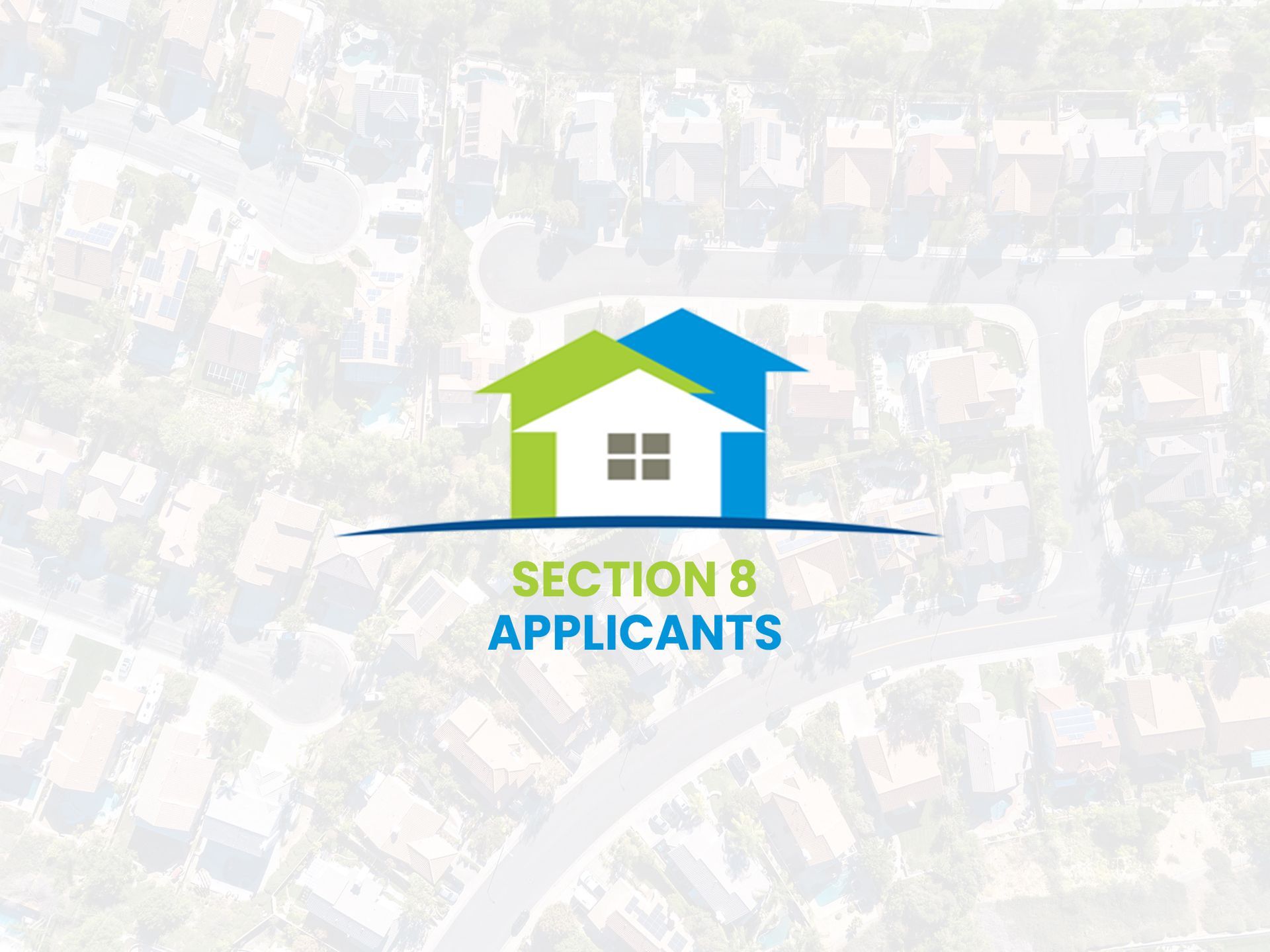How Tenant Relief Act (AB 3088) Affect Evictions and Landlords Rights
Since 2019 the landscape of Rental Housing Law has changed drastically. Here is what you need to know.
Recently, John Tiner (President and CEO of Tiner Properties) sat down with eviction attorney Thomas Hogan to talk about AB 3088, eviction laws in 2021, and landlord’s rights. Here are some of the questions that came up during this discussion.
AB 3088, The Tenant, Homeowner, and Small Landlord Relief and Stabilization Act of 2020
John:
In the new real estate laws, under AB 3088, what used to be a 3-day notice is now a 15-day notice, is that correct?
Thomas:
Yes. If you served a three-day notice before March 1st, and you didn't accept any rent, and all things being equal, that notice is still valid. You could start on that notice today. But if you have a three-day notice that went out in March or April and May—and I know some people were saying you can give your three-day and then we can put it in the queue in the court—there were some folks who were trying to do that. Well, that notice is now obsolete, and that queue is empty.
So, the only notice you could give now for the protected period, or the transition period, would be the 15-day notice with all the bells and whistles of the declaration, that they can take off and send back to you, and the notification of rights, so they know what their protections are. And then the 15-day notice is more like a 19-to-20-day notice because weekends and holidays aren't counted in that [count].
John:
So longer waiting periods?
Thomas:
Yes.
What is the best practice serving Pay or Quit notices on tenants who have notified the landlord that they are negatively impacted by COVID? Should landlords serve for all the rent due? Or just the required rent due?
John:
What do you think is best practice regarding a tenant who's continually late [on rent]? They've done their declaration. Maybe they paid no rent from March or April onward—and then they started paying 25% of the rent when that became necessary.
Should we be serving them a three-day Pay or Quit every month? Or should we be waiting until the end of the covered and protected period, and then serving one for the whole balance?
Thomas:
Well, being that there are some ambiguities as to what happens if you give it for the whole balance and they come back and send you a declaration that they were impacted for that whole period of time—you may just have to end up giving them a notice for just 25% anyway in order to get your case moving, if they don't pay it.
Because some owners want to at least put the tenant to the trouble of having to make the declaration. And some owners want to wait and put it all in one bunch and not go through the administrative expense of putting out a notice every month. It's a business decision more than a legal decision.
John:
It could be done either way?
Thomas:
It could be done either way.
John:
And then at the point there where a landlord has to decide, “We're going to evict” or “We need to move forward with that”, they'll probably be talking to you. And you'll be double checking their work to make sure that you have something valid to move forward with in the eviction.
Thomas:
That's one issue, and then the other issue is—and this is kind of a clincher—you can come to me and pay me for the eviction, which can be 850, 950, or over 1000 dollars, depending on what goes on with it. And the tenant can come in—let's say you gave your 15-day notice and the declaration never came back. You send it over to me 19 days later and we start our process.
Well, there's a provision in AB 3088 that the tenant can come to court and say, “Oh the dog ate my declaration form” and hand it to the court, and put it in. The court will set a special motion, just like if they defaulted in an eviction, to set aside your case. So, your case could still get dismissed after you did everything right.
John:
Well, I'm afraid that ends up being the answer all too often in landlord-tenant law. But, that's the process. This is another good reason to pick tenants that are excellent in the first place.
Thomas:
Absolutely.
After the protected period, can we evict tenants who have paid only 25% of their rent due since September 2020?
John:
So, for a tenant who didn't pay any rent since March of last year, but then they paid the 25% from the point where they need to until the end of the period, which is March 1st or February 1st, right? What can we do with them? Can we evict them at that point?
Thomas:
Only for the 25 percent. And otherwise no, unless they have some other breach of the lease that you've got.
John:
You've got a tenant who didn't pay a lot of rent—
Thomas:
Right?
John:
You can get a money judgment, but you can't evict them on the rent?
Thomas:
No.
John:
So, there's nothing that we can do to get them out of the property over this?
Thomas:
No.
John:
—if they start paying rent?
Thomas:
No.
What should a landlord do about the balance of rent due during the protected period?
John:
Okay Tom, what happens to the balance of rent at the end of this protected period? There's a big dollar amount that may be due with some tenants. What happens to that?
Thomas:
So, God willing, your tenant is solvent and has an excellent job and has good resources and assets. Because what becomes of it is, for the protected period, that rent can only be pursued in a small claims action after the fact. For the transition period, only 25% can be acted on as an unlawful detainer.
So, you begin with—you take 25% of the rent—let's say you're renting a house for two thousand dollars a month. That's 500 dollars a month instead of 2000 dollars a month that you can give them a notice to Pay Rent of Quit on February 1st. If they fail to pay, then you can evict them for whatever part of the 25% they don't pay. For the rest of it —the other 75%, the 1500 a month—you're adding that to the protected period rent and going to small claims court. So, you're just getting a civil judgment and then you have to take whatever action you can to collect that.
John:
So, the rent that was due that's not a protected rent, period?
Thomas:
Right.
John:
They've been 100% of the rent until it was 25% of the rent that they only had to pay. If you add all that together, you can't evict on that?
Thomas:
Right.
John:
Right. So, all you can do is get a money judgment?
Thomas:
Correct.
John:
And it's a small claims court action?
Thomas:
Yes.
John:
Attorneys aren't allowed there?
Thomas:
No.
Money judgements are made for ten years and renewable for ten more years if necessary.
John:
Okay so there's something landlords and their property managers need to do, is go to court and get a money judgment which lasts for?
Thomas:
10 years plus it's renewable for 10 more.
John:
So, you can cause a tenant to be handcuffed with this money judgment that will be up to 20 years. It can stop them from buying or selling a house or many other things. It'll affect their credit. So, if they have means, they'll probably want to pay that debt off. If they don't, and you have “that kind of a tenant”, it may be something you couldn’t collect unfortunately.
What about evictions unrelated to non-payment of rent in 2021?
John:
Where are we with the non-COVID related evictions in Sacramento courts right now? In other words, if a person is committing waste, if they are punching holes in the wall, if they're destroying the property, or fighting, or criminal activity—those people can still be evicted right now?
Thomas:
Correct. Neither the CDC order nor AB 3088 prevent you from doing at fault evictions and most non-at-fault evictions.
John:
But you evict a lot of people. The reality is a very high percentage of all evictions take place because of non-payment of rent, something like 95% is the reason for most of them, right?
Thomas:
The basic reason is non-payment of rent. And I think you've seen it yourself. There's kind of a cottage industry of folks who pay three months of rent, then they don't pay three months of rent, and then they move on, and don't pay three months of rent somewhere else. Which is kind of a lifestyle choice.
AB 1482 California Rent Control
What is the maximum rent increase allowed with the new Rent Control and Anti-Gouging laws?
John:
All right I want to shift our focus now to rent control.
So, with the new rent control laws that came in effect this year—Assembly Bill 1482 I believe—what is the maximum annual rent increase allowed?
Thomas:
Well, my understanding is the economy dropped in growth a bit as of April 2020. So, the city of Sacramento I think posted that six percent was the rent-controlled rate for multi-family properties, where the tenant has been in possession. For last year I believe it was 8.3%.
John:
8.3% for the city?
Thomas:
For this area. Because City of Sacramento and AB 1482 both have five percent plus CPI (Consumer Price Index). So, if you know the CPI for your area you know the maximum, because you add it to the five percent.
John:
Okay.
Thomas:
Probably coming up this April, it'll be pretty close to just five percent. But we do have two states of emergency. We have a federal state of emergency and we have a statewide state of emergency because of COVID-19. So that means that it is actually a crime to increase rent more than 10 percent, even for non-rent control.
John:
Okay.
It is a crime to increase rent by more than ten percent during the current COVID-19 protected period.
John:
So, we're talking about some overlapping laws. We have rent control and then we have rent gouging laws. With rent control, that's only covering, as I understand it, apartments and duplexes. And then there's an age restriction with that, 15 years?
Thomas:
Yes.
John:
So single-family homes and condos, which is the majority of what we manage, are exempt [from rent control]?
Thomas:
Right.
John:
But we are not exempt from rent gouging laws? The 10% rule?
Thomas:
Correct. I believe that's Penal Code 396.
Single family homes are exempt from rent control, but not exempt from rent gouging laws during a declared state of emergency, like COVID-19.
Thomas:
That makes it a crime to increase costs of goods and services more than 10 percent during a declared state of emergency.
John:
We've been under one quite a while between the fires and the pandemic and probably will continue to be for some time?
Thomas:
Correct. So, if you've raised your rent more than 10 percent, there are a few ways to finagle it. Say if you've been putting capital improvements into the property that —
John:
Some exceptions?
Thomas:
Some exceptions. But otherwise, yes, you're under some fairly strict guidelines for those. The other thing you have to ask yourself as a business question is, when it's so easy for a tenant just to say that they're impacted and can't pay, if you're getting the rent right now regularly—do you want to mess with that?
John:
That's a very fair question.
What is your best advice for landlords who are not receiving all the rent due right now?
John:
So just as a general strategy for landlords right now, what's your best advice for someone who has a tenant who's not been paying [rent]?
Thomas:
Well some of my clients just want to make sure that the tenant has to jump through the same hoops they do.
They want to give the 15-day notice so they want to do that which some will do themselves and some will hire a manager or me to do. If you consider that to be a hollow gesture—that they're just going to sign the declaration at some point and get it back to you—or you don't plan to follow through with it anyway—then you can wait January is just down the road. So if you're watching this in January, then you would give your notice for the full balance of the transition period, 25%. If they gave their declarations, you give for the 25 percent. If they didn't, you give it for the whole thing and see what happens with that. If you get paid, then you've got your money. If you don't get paid, then you may have a civil lawsuit. You may be able to do an eviction. I guess the word is patience. If you're really impacted and you're a small cap landlord maybe you want to look into those mortgage protections and mortgage deferments.
John:
Well one of our strategies that we did and when this first came up in early summer of 2020—some of the tenants who couldn't pay—couldn't imagine how they were going to ever catch the rent up—we sat down with them and we said, “Hey, we would love to not see you gather a huge debt and then have no way to catch up with it. If you'll move out we'll forgive your last month's rent. Give us keys, and we'll part friends.” That was a strategy that's turned out to be really good. We only had about six of those out of over 800 properties. but for us I thought that was an excellent strategy our landlords are money way ahead by having done that do you think that's still maybe the best policy for some landlords?
Thomas:
Well, I think it depends on what kind of property is and where it is as far as whether you're being seen as subverting the just cause eviction. One thing you have to be careful of is—one thing AB 3088 did is it added COVID-19 to the retaliation part of retaliatory eviction. So if you're forcibly making people —which you're not. I’m not suggesting that; I’m just saying if you are—you're saying, “I don't want this to deal with this person anymore” and you just hand them a 60-day notice, you've probably violated at least three statutes and you're in trouble. If it's, “I’m going to make you an offer you shouldn't refuse, because you're accumulating debt. It's unlikely you're going to pay it. You're going to have to owe it at some point and maybe you're over your head” and giving them a door out, I don't think that's illegally moral, or as they say, fattening.
John:
Okay. The concept is that we want to we want to make a win-win situation with a tenant where the both the tenant and the landlord have buy-in together. They've come to an agreement and nobody's forcing someone.
Yes, and if we can do that that's a good situation from a landlord perspective.
Thomas:
Yeah, absolutely and especially come January when these 30-thousand and 40-thousand-dollar sums are starting to come due. Some amount of forgiveness for keys as you pointed out is probably a wise and mutually beneficial solution.
What will an eviction cost a landlord when it becomes available again?
John:
Okay, so what is an eviction going to cost a landlord when it becomes available again?
Thomas:
Well, it's a much more restrictive process depending on what we have to do. Because a for-cause eviction is much more involved than a not-for-cause eviction. I have a basic rate of $850 if it all just goes to default. But the chances of that happening anymore are slim.
We did have a period there where the judicial council had illegally—and I think they knew it was illegal—illegally shut the courts to landlords. That was our Judicial Council and led by the Supreme Court of California. Basically, from April 6 to September 1st, they closed the door to landlords.
But it did create a court holiday. So, it did extend some of your statutes of limitations. We're going to discuss that and jump into that. Though for some of your notices there was a tolling of those periods. But, to focus on the issue, we'll have to get witnesses. We'll have to do motions.
John:
So [evictions] are going to be more complicated?
Thomas:
They're going to be more complicated.
John:
$850 evictions.
Thomas:
Almost all of them now are going to be more complicated, yes.
John:
We've talked some about a concept—almost a new phrase—which are “engineered evictions”. And I think what we're talking about, it used to be that, very rarely we had to do an eviction, maybe one or two a year. Tom would meet me in court, and he'd have his file and he'd read one page and I’d answer, “yes” to everything that he asked me. And the judge would give us an eviction in our favor, almost always. Very simple; very straightforward; nothing contested.
Now there's a million different things that they're going to contest and argue, and they have court support, and court attorneys that'll actually help them. So, simple evictions of $850 are kind of a thing of the past. They're going to be expensive and time consuming.
Thomas:
Yeah, it it's gone from jump rope in the past to a sword dance now. Because there are so many new regulations which we just discussed. AB 3088—they're going to come back and say, “I never got my disclosure” or “I gave them my declaration” or “This is retaliation because I was affected by COVID”. There are so many new defenses that are available. And there are so many restrictions on the landlord's rights on the other side.
John:
If you can avoid an eviction, that's a great path.
Thomas:
Well, I disagree. [both laugh]
John:
You win.
How urgent is it for landlords to get a money judgement once the protected period is up?
John:
How important it is to get the money judgment, in say March if that's the time that we can go back and do that in a small claims court?
Thomas:
For a breach of contract on rent, for verbal contracts, and you don't use verbal contracts, it's two years. And for written it's four years. But once the tenant has flown the nest, it's difficult to track them down and get them served and all that sort of thing. So, I would say that at least to get yourself on record, if investing in property is a business, even if it's you, even if it's fully paid for and it's your own money, and all of that, it's a business, and it's a profit and loss issue. I think it's very important to at least document this is an account receivable that you're owed and have it so that it's preserved. So, at some point you have a chance of being compensated for the benefits the goods, the services, you've provided—the housing you've provided.
Landlords are entitled to be paid for putting themselves at risk.
John:
Absolutely. Like I said, we have nearly 800 properties and 97% of my tenants are paid in full. And of the other three percent, many of them have paid a good portion of their rent. I think that's probably significantly better than the national averages. Do you know what that is?
Thomas:
I don't know what the national average is. I know that CDC said 40 million tenants face eviction. I think that's hyperbole. But I think they estimated nationwide approximately seven billion dollars of rent would be in arrears.
John:
So, I think we're beating the national average significantly within our portfolio. But we have a nice supper in properties as compared to apartment buildings and other things where evictions are much more prevalent but in our case with the three percent who have only paid partially or fully, my intention is—as soon as it's available to us—to take them all into small claims and get a money judgment on record, so that we have established how much rent is due. That is something I think is going to be a best practice to do as soon as it's available to us, where there may be some court backlogged in this in this situation. Within a few months, I would definitely think it's best practice to go ahead and get that now, and get the tenant and the landlord on the same page for what was owed.
Thomas:
Right. and just so you know, trials and hearings now are done on Zoom.
John:
Okay, we'll see where that goes next year.
Thomas:
Next year, yes, I agree. I think you need to document your receivables and at least make it so that that you have a chance of being compensated. Landlords aren't getting a break on their taxes. They're not really getting a break on their mortgages, even if they get a deferment, they still pay the mortgage with interest. They're not getting a break on the utilities and the maintenance obligations. And you have tenants who are still saying, “I want x y and z fixed, but I’m not going to pay you the rent.”
John:
So, a black hole of money.
Thomas:
A black hole of money, yeah.
John:
Well thank you very much for being with us today, Tom. I appreciate you answering all these questions in detail. We use Tom Hogan exclusively for evictions when we need them.
We only have one or two a year. Sometimes we inherit properties with bad tenants and that'll add a few more to the number of evictions that we do. not tenants we place but tenants we inherited on a new account.
Thomas is excellent; he's not only good for the eviction process but he's great for answering legal questions with regard to tenant and landlord and a fantastic asset we've used them for over 20 years and we highly recommend him. Tom, what's your number and how do people contact you?
Thomas:
TomHoganEvictions.com is my website. hogan@surewest.net is my email and 916-929-2255 is my phone number.
John:
We recommend him if you're a landlord not under Tiner Properties, and you need some help, feel free to call Tom directly. Tom often says that we are we are not his best client because we don't do very many evictions. We're always very proud of that. But we actually have a great friendship and a great business relationship, and our recommendation is very strong for him. So good luck to you.
Thomas:
Thank you, John.
For more information contact:
Tiner Properties - info@tiner.com - 916.974.6000
- or -
The Law Offices of Thomas Hogan - hogan@surewest.net - 916.929.2255













